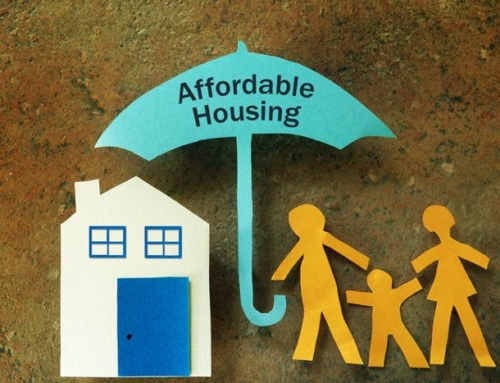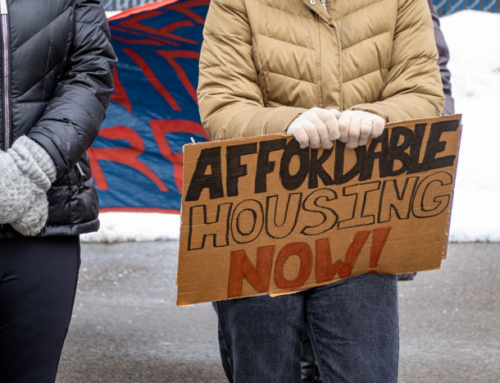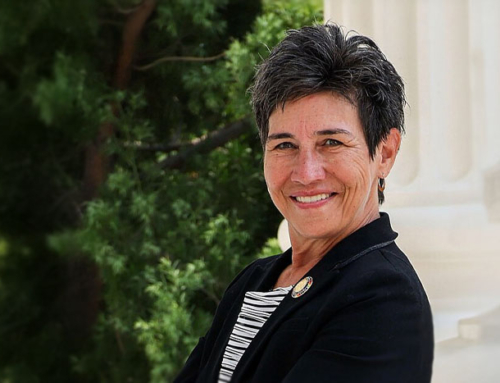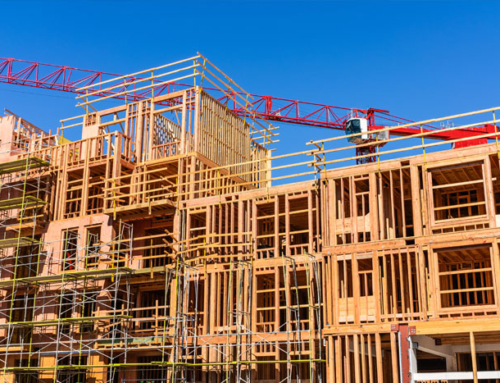2024 is shaping up to be a busy year at the ballot box for affordable housing, with measures now qualified for both the March and November ballots and other measures anticipated to qualify in the coming days. Here is a snapshot of nine ballot measures that could shape housing in California over the next year, including five Constitutional Amendments, three potential bond measures, and one measure that would repeal the Costa Hawkins Rental Housing Act.
Article 34 Measure Headed for the March 2024 Ballot
- Article 34 Repeal (SCA 2) – A State Constitutional amendment has qualified for the March ballot to repeal Article 34, which prohibits the development of affordable homes unless a majority of voters in a jurisdiction support the project, a requirement that does not apply to market-rate development. To approve new affordable housing, communities must place measures on local ballots, a costly and time-consuming process that is not always successful. Estimates are that Article 34 can increase the cost of building a home by 15%. Senators Ben Allen (D-Santa Monica) and Scott Weiner (D-San Francisco) proposed SCA 2 to bring the measure before the voters; the bill received near unanimous support from both the Senate and Assembly.
Two Measures Impacting Housing Have Qualified for the 2024 November Ballot
- Rent Control (Justice for Renters Initiative) – Proponents of rent control have gathered enough signatures to put the issue before the voters again in 2024 after failing to garner the needed votes in two previous attempts. Called the Justice for Renters Initiative, the measure would repeal the Costa-Hawkins Rental Housing Act of 1995, which, among other things limits when rent controls can be placed on single-family homes and apartments built after 1995. The initiative states that the State cannot prohibit local jurisdictions from adopting, maintaining, or expanding rent control measures. However, it does allow the State to set some minimum protections for renters, like AB 1482 (Chiu-D San Francisco, 2019), which established a rent cap and required just cause for evictions. Check out this summary from the Legislative Analyst’s Office.
- Restrictions on Fees and Charges – A coalition of business and commercial real estate interests have banded together to place a constitutional amendment before the voters in 2024 that would change the voter threshold required for approval of new taxes and fees. Currently, when the Legislature wants to place a state revenue measure on the ballot, It must garner 2/3rds approval from both legislative bodies. The measure then can be approved by a majority vote of the electorate. This Constitutional Amendment would change the voter approval to 2/3rds of the electorate.Local governments currently have the ability to establish fees with a vote of the legislative body, and some general taxes can pass with a simple majority vote of the people. This amendment would require that local revenue measures be brought before the voters and receive a 2/3rds vote of the citizens to pass. Measures placed on the ballot through signature gathering would also be required to achieve 2/3rds approval of the electorate. Coined the “Taxpayer Protection and Government Accountability Act,” the measure would also expand the definition of taxes to include many fees and eliminate the ability of voters to approve advisory measures that determine spending priorities on the same ballot as a proposed tax measure. Local governments and other organizations have come out in strong opposition, stating that the measure would have a major impact on State and local revenues and result in service cuts and other unacceptable outcomes.
As a response to the measure, Assemblymember Chris Ward (D-San Diego) and Assembly Speaker Robert Rivas (D-Hollister) have recently introduced ACA 13, which would ask voters on the March 2024 ballot to revise the California Constitution to require that any initiative seeking amendments be approved by 2/3rds of the voters rather than the current majority vote requirement. If ACA 13 is placed on the ballot and approved by the voters, the supporters of the Taxpayer Protection and Government Accountability Act would need to garner 2/3rds support for their measure when it appears on the November 2024 ballot. The bill is currently on the Assembly floor awaiting a vote before it heads to the Senate.
Local Control Advocates Try Again to Limit State’s Abilities to Enforce Housing Laws
- Local Control – Our Neighborhood Voices, a coalition of local elected officials, is trying once more to gather enough signatures to place a constitutional amendment on the ballot to limit the State’s ability to require that jurisdictions approve housing development, essentially undoing the last several years of progressive housing legislation approved by the Legislature to respond to the State’s housing crisis. The group tried to place the measure on the ballot in 2022 but was unable to gather the needed signatures. If passed, the measure would have far-reaching impact, potentially negating the Housing Element, Fair Housing laws, rent protections, Accessory Dwelling Unit laws, recently passed legislation like SB 9, and even environmental and parks related laws like the California Clean Air Act and Williamson Act.The coalition, which includes members of the group Livable California, argues that recent laws have resulted in the development of luxury and market-rate developments and not housing affordable to lower- and moderate-income residents, a false flag for their opposition to residential growth of all kinds and their desire to maintain “community character.”
Voter Threshold Measure Moving Through the Legislative Process
- Voter Threshold for Housing Funds (ACA 1) – Assembly Speaker Pro Tempore Cecilia Aguiar-Curry (D-Winters) has been trying for years to place a constitutional amendment on the ballot to change the voter threshold for affordable housing bond measures, parcel taxes, sales taxes, and other sources to 55%, consistent with the percentage required for school bonds. Currently, affordable housing measures require a 2/3rds vote of the electorate, which is a very high bar for any ballot measure to meet.The bill would apply to any measure that is passed on or after the amendment passes. This year, the Assemblymember’s bill to place the issue on the ballot – ACA 1 – is moving, and voters may get the chance to weigh in on the November ballot. The bill is currently on the Assembly floor awaiting a vote before it heads to the Senate. Advocates have asked the Assemblymember to consider adding language that would allow bond funds to be used for non-capital expenses. Advocates are also ready to begin collecting signatures in the event the bill is not signed by the Governor.
Several Bond Measures Likely to Appear on the March and November Ballot
- The Legislature returned from its break with a full calendar, including moving all bills through committee and to the Governor by the end of session on September 14th. Any bond measures that the State would include on the March ballot would also need to be approved by that date. The Governor has said that he doesn’t want to approve more than $26 billion in bonds, yet more than $100 billion has been floated to date, including significant funding for the State’s schools, water projects, and flood and fire protection. Decisions about which measures go forward will be part of serious negotiations between competing interests.
On the housing front there are a few potential measures under consideration:
- Mental Health Bond (AB 531) – Governor Newsom has pushed for a $4.68 billion measure on the March ballot that would finance the development of new homes and expand psychiatric and substance abuse treatment beds and services for those who are homeless and for at-risk veterans. At least $3.8 billion of the funds would be allocated to the rehabilitation or construction of up to 10,000 new treatment beds, with the remainder made available for permanent supportive housing for veterans. The Behavioral Health Infrastructure Bond Act of 2023 (AB 531) was introduced by Assemblymember Jacqui Irwin (D-Thousand Oaks) and is the vehicle for the ballot measure. In addition to the funding measure, the Governor has also proposed a companion bill (SB 326 from Senator Susan Talamantes Eggman, D-Stockton) to shift how current voter-approved funding for mental health is allocated.
- Housing Bond (AB 1657) – Assemblymember Buffy Wicks (D-Oakland) has been moving a bill (AB 1657 – the Affordable Housing Bond Act of 2024) through the legislature that would place a $10 billion bond on the March 2024 ballot to fund the State’s housing programs, which are running short on funds. The bill would support existing housing programs that finance new rental housing, supportive housing for the homeless, and homeownership, including the Multi-Family Housing Program and the CalHome Program. Bond supporters estimate that the measure would produce and preserve more than 50,000 affordable homes, many of which are currently in the pipeline.
- Bay Area Housing Finance Agency (BAHFA) Bond – the Bay Area Housing Finance Agency, along with a coalition of partners, is working to place a $10-20 billion bond on the November 2024 ballot for affordable housing in the nine-County Bay Area. The allocation of these funds is dictated by AB 1487, which created BAHFA and set forth a plan for ballot measures and funding distribution. Eighty percent of the funds go straight to counties, as long as they agree to be a part of the ballot measure, and to a select number of larger cities, including San Jose and Oakland. The remaining 20% is administered by BAHFA throughout the nine counties. Supporters are currently working on garnering support for the ballot measure as well as determining the amount and are hopeful that Assemblymember Aguiar-Curry’s constitutional amendment (see ACA 1 above) will garner the needed votes to reduce the voter threshold for approval to 55%.
- In addition to the BAHFA ballot measure, the City and County of San Francisco recently announced that it is considering a $300 million bond measure on the March ballot, which would need to be approved by 2/3rds of the City’s voters. The County of Santa Clara is also considering a bond measure as funding from its landmark $950 million bond measure from 2016 is nearly depleted.
© LeSar Holdings/LeSar Development Consultants. All Rights Reserved. Please be advised that any republishing of copyrighted material provided by our organization, in whole or in part, requires prior written authorization. For permission, please reach out to [email protected]. We appreciate your understanding and compliance in upholding copyright laws.






















